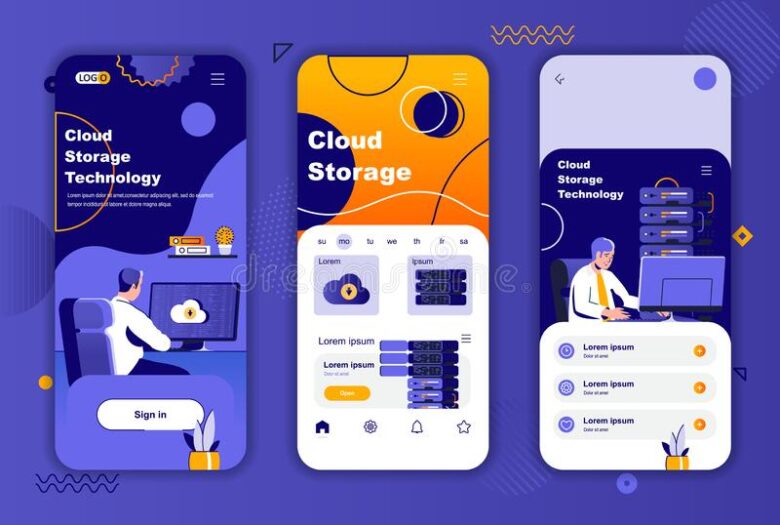In today’s digital age, businesses are expected to have a mobile app presence to remain competitive. However, developing a mobile app can be an expensive undertaking, especially for small businesses with limited budgets. This article outlines some budgeting tips for businesses to develop a mobile app on a shoestring budget.

Source: upwork.com
Contents
Determine Your App’s Scope and Features
Before you start building your mobile app, it is crucial to define its scope and features. This involves conducting market research, identifying your target audience, and determining their needs and preferences. This information will help you prioritize features and functionalities that are essential for your app’s success and eliminate unnecessary features that can increase development costs. Even with an app builder, it is still important to conduct market research and identify your target audience to ensure that the app meets their needs and preferences. Using an app builder can significantly reduce development costs and provide businesses with a cost-effective solution to build a mobile app.
Choose the Right Development Approach
There are two primary methods for developing a mobile app: native and hybrid. Native apps are built for a specific operating system, such as iOS or Android, and offer better performance and user experience. Hybrid apps, on the other hand, are built using web technologies such as HTML, CSS, and JavaScript, and can run on multiple platforms. While native apps are preferred for their superior user experience, hybrid ones can be a more cost-effective solution for businesses on a tight budget.

Source: netsolutions.com
Outsource Development to Freelancers or Offshore Teams
Outsourcing mobile app development to freelancers or offshore teams can be a cost-effective solution for businesses looking to develop it on a shoestring budget. However, it is essential to choose a reliable and experienced team to ensure the project’s success.
Advantages of Outsourcing Development
Outsourcing development can offer several benefits, including:
- Cost savings: Offshore teams and freelancers can provide growth services at a lower cost compared to hiring an in-house team. This can significantly reduce development costs for businesses on a tight budget.
- Access to expertise: Outsourcing development allows businesses to access a pool of developers with diverse skill sets and expertise. This can help ensure that the project is completed on time and to a high standard.
- Flexibility: Outsourcing allows businesses to scale up or down their growth resources as needed, providing flexibility and agility to adapt to changing business requirements.
Choosing the Right Team
Choosing the right team is crucial for the success of an outsourced development project. Businesses should consider the following factors when selecting a team:
- Experience: Look for a team with a track record of delivering high-quality work and relevant experience in growing mobile apps.
- Communication: Effective communication is critical to ensure that the project is on track and that any issues or concerns are addressed promptly. Choose a team that is responsive and communicates clearly and effectively.
- Cultural fit: Working with an offshore team or freelancer requires cultural sensitivity and understanding. Look for a team that shares similar values and work ethics to ensure a successful working relationship.

Source: eternitymarketing.com
Use Low-Cost or Open-Source Development Tools
There are several low-cost or open-source development tools available that can help you build your program on a shoestring budget. Platforms such as Appy Pie, BuildFire, and AppMakr allow businesses to create simple mobile programs without any coding skills. Other tools such as PhoneGap and Ionic offer a hybrid growth method and allow businesses to build programs using web technologies. These tools can significantly reduce growth costs and provide businesses with a cost-effective solution to build a mobile program.
Leverage Cloud Services for App Hosting and Storage
Leveraging cloud services for hosting and storage is an excellent way for businesses to reduce their costs and improve their programs performance. Cloud services offer a scalable, secure, and reliable infrastructure that can handle the demands of a mobile app without the need for expensive hardware or maintenance.
Advantages of Cloud Services for App Hosting and Storage
- Scalability: Cloud services offer the ability to scale up or down server resources as needed, allowing businesses to accommodate changes in program usage and demand. This helps ensure that the app remains performant even during periods of high usage.
- Reliability: Cloud providers offer robust and redundant infrastructure that can ensure high availability and uptime for mobile programs. This helps prevent downtime and ensures that the program remains accessible to users at all times.
- Security: Cloud providers offer a range of security features, including firewalls, encryption, and identity and access management, to help protect mobile programs and their data from unauthorized access and cyber threats.
- Cost savings: Cloud services offer a pay-as-you-go pricing model, meaning businesses only pay for the resources they use. This can help reduce costs, especially for smaller businesses or those on a tight budget.

Source: dreamstime.com
Key Considerations When Selecting a Cloud Provider
- Cost: While cost is an important factor, it should not be the only consideration. Businesses should also consider the provider’s performance, reliability, and security features.
- Performance: Cloud providers offer different levels of performance and scalability, depending on the resources and services they offer. Businesses should choose a provider that can meet their program’s performance and scalability requirements.
- Reliability: Cloud providers offer different levels of reliability and uptime. Businesses should look for a provider that offers a robust and redundant infrastructure with high availability and uptime guarantees.
- Security: Cloud providers offer different levels of security features, including encryption, firewalls, and identity and access management. Businesses should look for a provider that offers robust security features to protect their program and data from unauthorized access and cyber threats.
Conclusion
Developing a mobile program on a shoestring budget requires careful planning, research, and strategic decision-making. By defining their scope and features, choosing the right development process, outsourcing development to freelancers or offshore teams, using low-cost or open-source development tools, and leveraging cloud services for program hosting and storage, businesses can develop a mobile program that meets their needs and budget. With the right strategy and mindset, businesses can create a mobile app that not only attracts new customers but also engages and retains existing ones.
